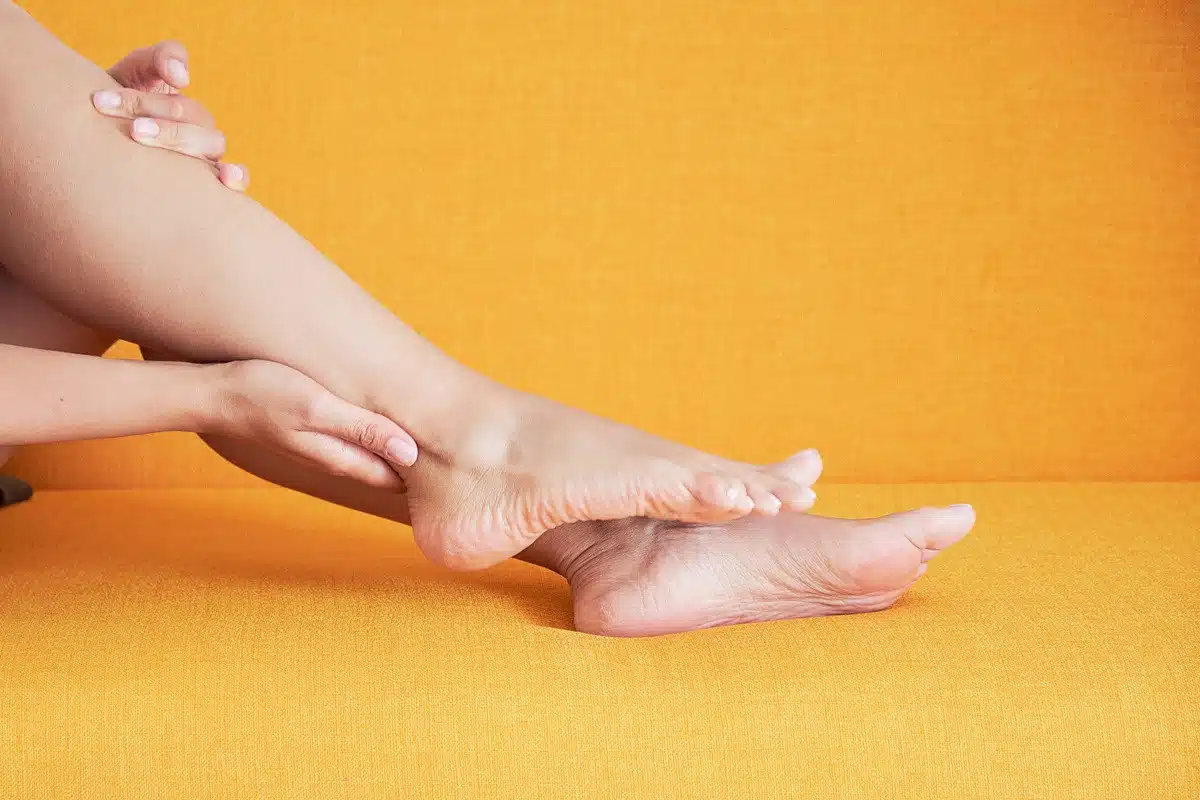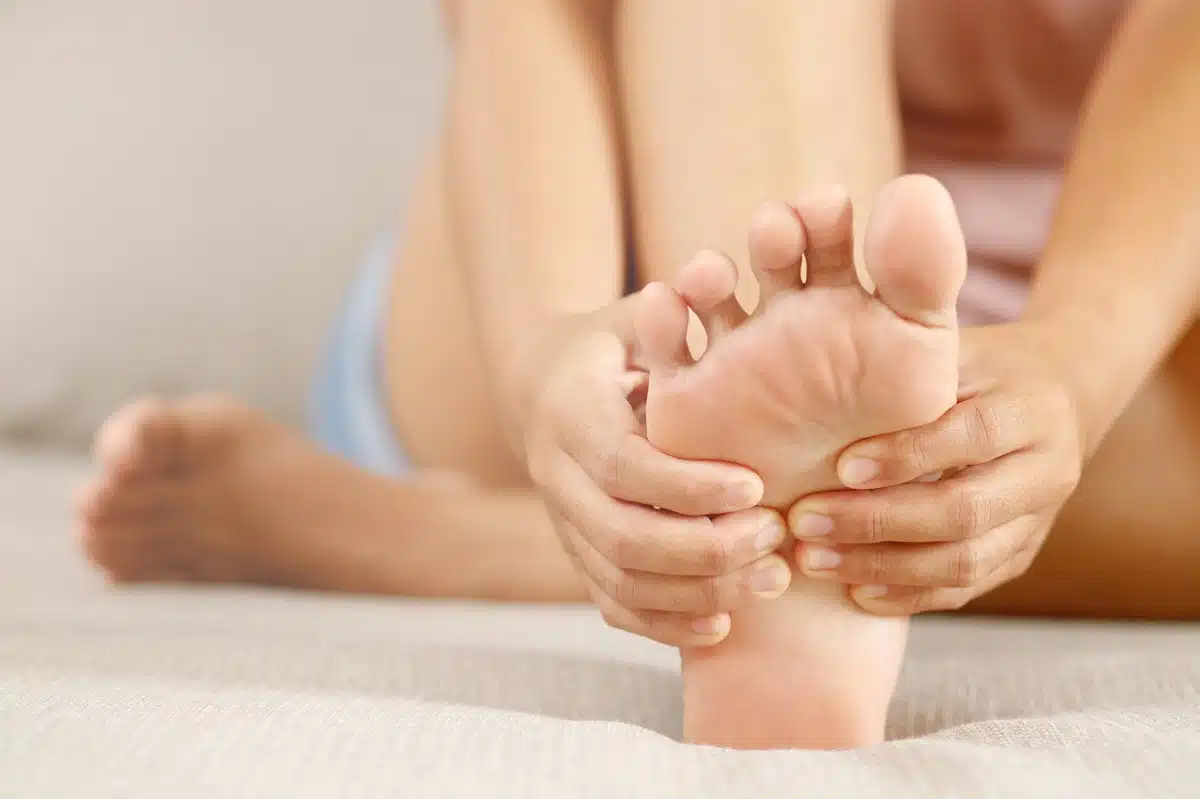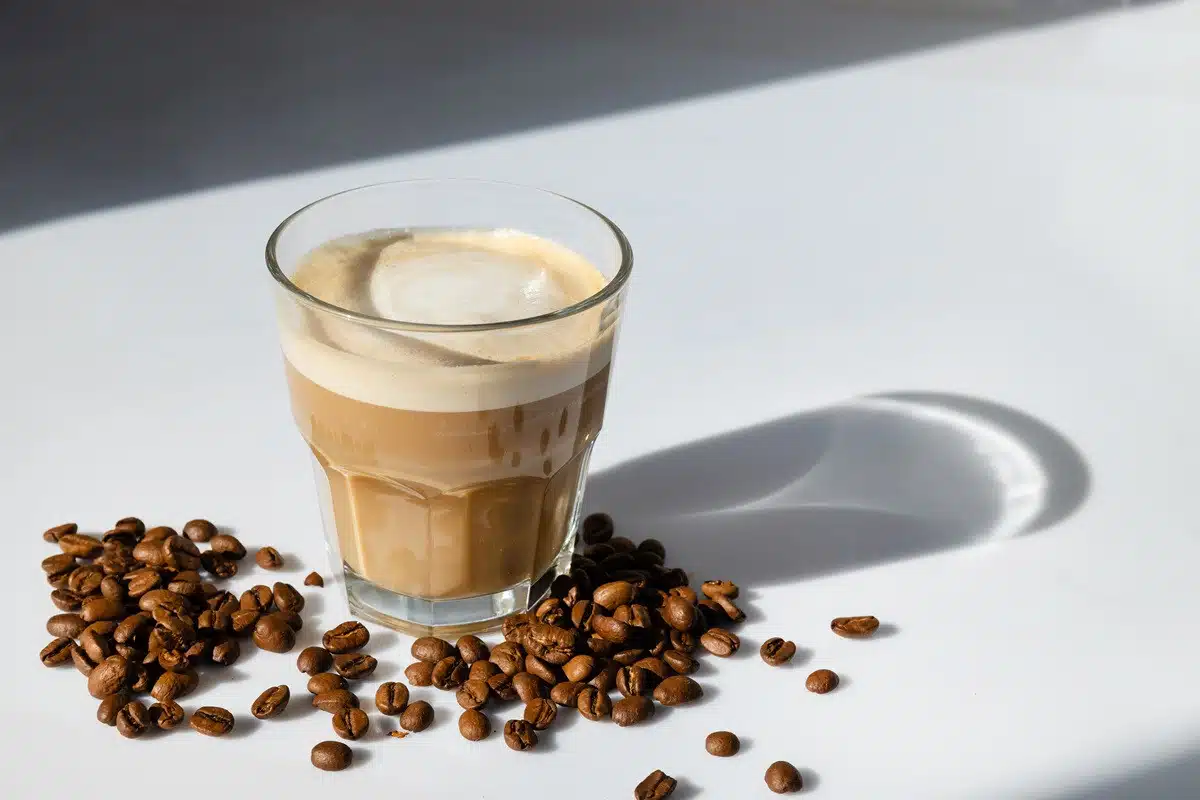-
A targeted vitamin cure can help

A deficiency in magnesium, vitamin E, or omega-3 can worsen water retention. These nutrients play a role in circulation and vascular permeability. Before taking any supplements, consult your doctor or pharmacist.
-
Self-massage with essential oils: a well-being ritual

Massage your feet with a vegetable oil (sweet almond, coconut, etc.) mixed with a few drops of peppermint or cypress essential oil. Work your way up from your toes to your calves in a circular motion. This stimulates circulation and relieves tension.
-
Lighten your plate

Cut down on high-salt foods, processed foods, alcohol, and caffeine, which promote water retention. Instead, focus on foods rich in fiber, water (cucumber, watermelon), and potassium (bananas, spinach) to support your circulatory system.
-
Draining herbal teas: simple and effective
Infusions such as cherry stem, parsley, or dandelion have mild diuretic properties. They facilitate the elimination of excess fluids and can reduce feelings of bloating.
-
The choice of shoes matters
Avoid high heels, stiff shoes, or shoes that are too tight. Choose comfortable, flexible, and well-ventilated shoes. If your feet swell frequently, choosing a slightly larger size may improve your comfort.
-
Consult if symptoms persist

If, despite all these methods, your feet remain swollen for several days, or are accompanied by redness, pain, or fever, it is essential to consult a healthcare professional. This could indicate a circulatory, lymphatic, or kidney problem that should not be overlooked.
In summary
Swollen feet shouldn’t be ignored, but they’re not inevitable. With simple steps, a balanced diet, and a few natural remedies, you can quickly relieve this unpleasant sensation. Tonight, why not try a foot bath or a self-massage? Your body will thank you.

